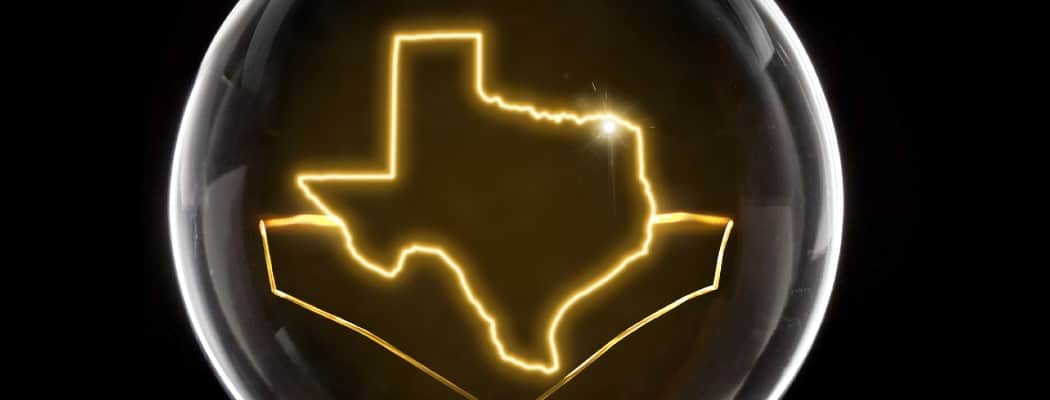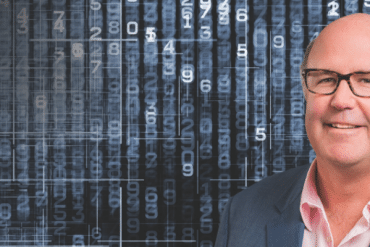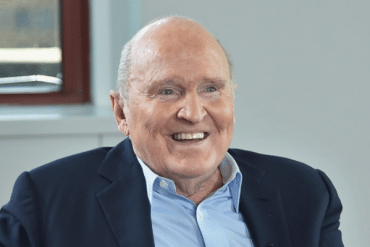Former energy titan Jim Hackett discusses renewable energy, the climate and his family’s quest to fight mental illness.
Nantucket summer resident Jim Hackett has a long and storied career in the energy industry, including nearly a decade as CEO of Anadarko Petroleum Corporation. Hackett Tower, a thirty-one-story high-rise building located at Anadarko’s headquarters in The Woodlands, Texas, was named in his honor. But in 2012, Hackett famously left the boardroom to return to school—specifically Harvard Divinity School—where he studied the difference between spiritual and intellectual values, and sought to learn more about injecting spiritual purpose into large institutions.
 As part of a relatively large group of Texans that come to the island during the summer season, Hackett and his wife Maureen have made Nantucket a special retreat for their family since the 1970s and have donated generously to organizations like Nantucket Cottage Hospital and the Boys & Girls Club. Hackett spoke with N Magazine and shared his insights on the future of energy, his reservations about political legislation like the Green New Deal and his family’s difficult journey that led to their philanthropic initiatives and focus on mental health.
As part of a relatively large group of Texans that come to the island during the summer season, Hackett and his wife Maureen have made Nantucket a special retreat for their family since the 1970s and have donated generously to organizations like Nantucket Cottage Hospital and the Boys & Girls Club. Hackett spoke with N Magazine and shared his insights on the future of energy, his reservations about political legislation like the Green New Deal and his family’s difficult journey that led to their philanthropic initiatives and focus on mental health.
Looking ahead ten, twenty, thirty or even forty years, what will be the source of energy for most Americans?
We’re going to have a much more diversified source of power than we have had historically. If you look out thirty years, you will still likely see a very significant portion of hydrocarbons but with a much greater portion of not only what we call renewable energy (wind and solar today) but also biofuels and perhaps hydrogen. Energy is so important to the world, and we continue to look for new answers, to make it more efficient, more plentiful, more affordable, and we need to continue to do that, but I don’t think it’s going to happen overnight.
What forms of energy are you most optimistic about?
My fond hope is that we have a resurgence in nuclear because it still is a zero carbon source, zero methane too. And it’s scalable and affordable if it can be developed in a different way than historically. Chernobyl made it untenable in the United States to build a lot of new nuclear plants. And the litigation and regulation make it very hard to afford to build new large scale ones. So we’ve got to come up with a new way to deliver nuclear power – which is being done with safer modular units. And then we really need to go to the oceans because that’s a renewable source that can be much less interruptible than perhaps wind and solar. Of course, the holy grail is finding battery storage capability that is affordable and scalable, and then all power sources can be utilized more effectively.
From an environmental perspective, is the energy industry doing enough with regard to climate change and confronting it in a way that addresses the challenges it poses?
I think the industry is doing a lot. You can understand where my bias may be, but I’m a scientist to start with. I’m not a politician. I’m not a believer in religious causes outside of God-derived faith traditions. We have made environmentalism into a cause. As humans, we can react with alarm and passion as opposed to dispassionate science.
 So what is the dispassionate science?
So what is the dispassionate science?
Is carbon dioxide bad? No, it’s a life-giving force. Is it bad in excess quantities? Many believe so. And if it is, what is the remedy for that? We have to be very careful. Battery technology for electricity storage should be the priority. I want to see us leave hydrocarbons completely in an intelligent and thoughtful manner without prematurely abandoning the affordable and scalable resources that can help us thrive and flourish until valid scientific answers are found. I’m skeptical of the solutions being provided to us unless they start with electricity storage (to make renewables more afford- able and scalable) and nuclear energy as the primary focus.
Do campaigns like the Green New Deal fall into the category you just mentioned?
To call it “aspirational” is an understatement. We need practical, science-based answers to reducing methane and carbon intensity not dream-schemes; otherwise, we hurt people who can’t afford a higher cost of energy. In addition to reducing the carbon and methane intensity of hydrocarbons and finding new sources of affordable and scalable energy, we should also be addressing the biggest issue for humanity – clean water. But we need to make certain that we do all of this with good science and policies that focus on the poor, not the privileged, like me, who can afford clean water and any form of energy a politician decides is right for me.
How do we approach it globally?
We will spend trillions of dollars in Western Europe and the United States – on both good and bad ideas —and we’ll make progress on reducing greenhouse gas emissions. But if we don’t get China and India on board, we’re not going to make much impact. The United States has been the biggest reducer of carbon dioxide in the last fifteen years of any country on Earth. And, until recently, we weren’t part of the Paris Accords, which tells you what the Paris Accords are worth.

One major focus of the Hackett Family Foundation is philanthropy in support of mental health initiatives. Why was your family drawn to this area of health care that has traditionally been so underfunded and underutilized?
We had a very seminal event occur when one of our daughters was sexually assaulted in a high school in the Hartford area. We didn’t know about it. For two months, we were in the complete dark. She went back to school after winter break, and two weeks later, she received a note from this guy in her mailbox saying, “I heard you might be tempted to talk about what happened. If you do, I’m going to kill you.” Molly went into a catatonic freeze and fell to the floor and it ruined her life for the next two years. She was in and out of therapy and emergency rooms for a year. She finally came out of her dark place. After testifying for two days against her attacker, I said to my daughter, “Where do you want to go?” She said, “I want to go to Nantucket.”
What did you learn from that experience?
The thing that dawned on us right away was that we have this really strong nuclear family, all of these medical connections in our home town, and adequate financial resources and it still took us two years to get our daughter’s life back. What about these poor kids in the inner city who don’t have nuclear families and don’t have sufficient resources for therapy and psychiatric treatment? That’s when we started to put our efforts into helping them and others
who suffer from mental health issues.
 What have those efforts entailed?
What have those efforts entailed?
A group of Houston business executives voluntarily adopted mental health parity in our companies. Along with the Mental Health Association in Houston, I testified in front of Congress to get mental health parity legislation established federally. Before this, there wasn’t equal treatment for mental and physical health in company health and insurance plans — but both attack our physiology. Mental health challenges can be treated with medicine and therapy, just like we do with physical health. Mental illness is not a character flaw.
What has this process looked like?
Maureen and I first focused on getting rid of the stigma surrounding mental health. Then we worked on health parity. Now we are focused on creating better state mental health policies, which is why we founded the Hackett Center for Mental Health. Related to stigma, awareness and treatment, we helped develop a mental health [television] channel as a resource to people, which won an Emmy Award. We’ve had this evolution in mental health providers, and sufferers have seen tremendous progress over the last twenty years. Our daughter is the driver of that. God bless her.
This interview has been edited and condensed due to print space limitations.







